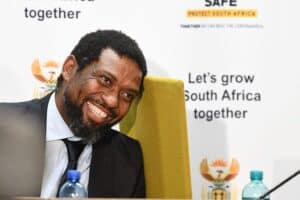Will increased hope improve the low level of trust?

Few states are more important in society than happiness and trust. All of the other indicators and measurements we use to gauge societal and economic health pale into insignificance compared with these two. Not only are they codependent but ultimately they will also affect all others things that we think are important.
I remember some years ago there was a significant global debate on incorporating levels of public happiness and life satisfaction not only as important metrics, but also as significant components of official policy. There’s no point, it can be argued, in having growth, income and employment targets as the primary policy goals, while people are disgruntled. That debate seems to have died down, most likely because of the extreme difficulty in measuring them, but perhaps too because it’s a fair assumption that a large part of humanity remains miserable, angry and for the most part in rebellion against the establishment.
Trust is largely created by personal experiences but can also be significantly influenced by external factors such as improvements in the economic and political climates which engender hope in the future. Globally there has been a marked improvement in economic growth prospects and domestically there has been a complete shift in prospects in a few short months, so adequately outlined by Hilton Tarrant in this Moneyweb article that further treatment here is unnecessary. Indeed, South Africa’s economic prospects are suddenly a lot brighter.
But will this translate into greater trust? That will take a lot more time and depend not only on economic and political factors. On the global front, economic prospects are very fractured and come with a growing fear of national isolationism and protectionism. There is growing concern also of the financial nature of this growth and the prospect of a repeat of the 2007 great recession. Domestically, much has to happen to restore trust in both government and private sector institutions. The apparent collapse of a corrupt cabal in the wake of some incredible exposé work last year by the media and many others, has to be followed up by rigorous accountability, law enforcement and retribution; as covered in my last article last year. This seems to be happening and could make 2018 one of the most significant life changing years in South Africa, should some of the criminals, including those in the private sector, end up behind bars.
For quite a number of years, one of the most credible global trust reports, the Edelman Trust Barometer, has consistently shown disturbing declines in levels of trust. Its 2018 report is not much different, but could be overtaken by recent events, especially in South Africa. Yet, it is useful to reflect on how it saw 2017 compared to the previous year which it described as “trust in crisis”. The global report, tables and graphics are available here.
The Trust index of all of the 28 countries measured has improved by only 1% – from 47 to 48 – in trust in the main institutions of government, business, NGOs and media. However, that means that we are still living in a world where these institutions are mostly distrusted, and hides the fact that one more country has moved from neutral to mostly distrusted. Trust in all South African institutions declined: government by 1% to 14%; business by 3% to 53%; NGOs by 8% to 50% and the media by 4% to 35%.
What this is saying is that no institutional sector in South Africa is fully trusted any more, with two having neutral scores and two being outright distrusted.
Some of the global highlights include:
- The rise of experts in trustworthiness.
- Respondents saying they want CEOs to take the lead on policy change instead of waiting for government, which now ranks significantly below business in trust in 20 markets. (A point I have repeatedly raised in my own articles.)
- A highly significant plunge in trust in social media, due to the occurrence of fake news. This in turn has raised trust in journalists themselves, particularly in reports where sources are named. There is a swing from trusting platforms to sources, but even here, as we have seen with the reckless Viceroy reports, sources themselves can be highly suspect. Excessive hyperbole and hysterical panic mongering in their work bear testimony to dubious motives and are never seen in serious company analyses.
- The global polarisation of trust where some countries like China have had massive trust gains, and others like the US record breaking declines.
The last bullet perhaps answers a question many South Africans were asking after Donald Trump was elected President of the US: “Who had the worst leader: Americans or South Africans?”
This may be a hint because trust in the US has suffered the largest-ever-recorded drop in the survey’s history among the general population. Trust by that group fell nine points to 43, placing it in the lower quarter of the 28-country Trust Index. Trust among the informed public in the US imploded, plunging 23 points to 45, making it now the lowest of the 28 countries surveyed, below Russia and South Africa. But mischief aside, this refers to trust in all four institutions, and not government alone, and by an informed group and not the general population where the US’s 43% is still significantly higher than South Africa’s 38%.
2018 is certainly going to be a very interesting year. Let the games begin. In many respects they already have.
Brought to you by Moneyweb
Support Local Journalism
Add The Citizen as a Preferred Source on Google and follow us on Google News to see more of our trusted reporting in Google News and Top Stories.








